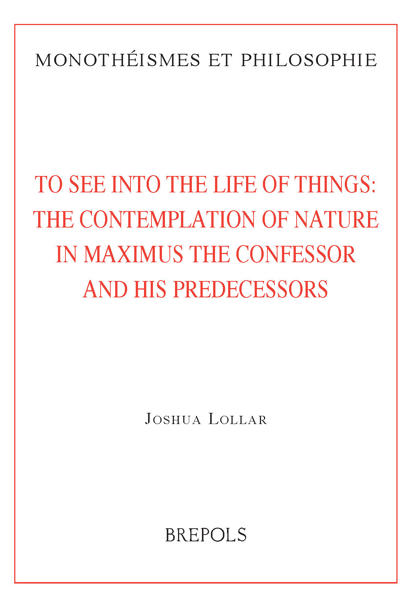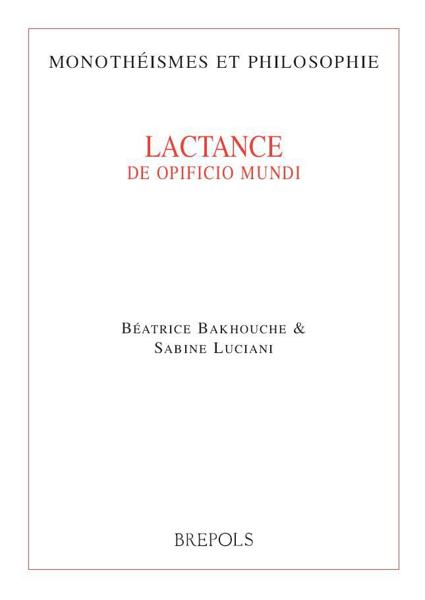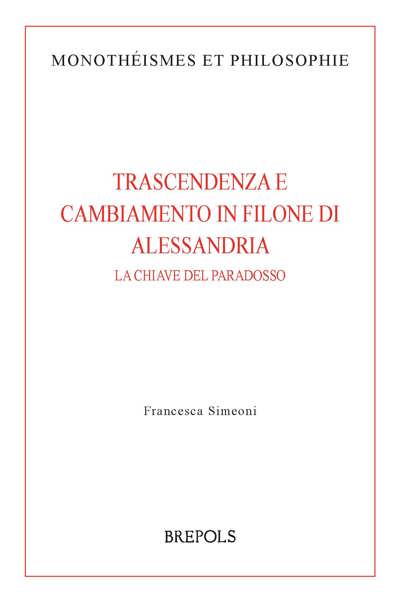
When Wisdom Calls: Philosophical Protreptic in Antiquity
Olga Alieva, Annemaré Kotzé, Sophie Van der Meeren (eds)
- Pages: 517 p.
- Size:156 x 234 mm
- Language(s):English, French
- Publication Year:2019
- € 110,00 EXCL. VAT RETAIL PRICE
- ISBN: 978-2-503-56855-3
- Paperback
- Available
This volume seeks to illuminate both the diversity and the continuity of protreptic in the work of a wide range of authors, from Parmenides to Augustine
“These few examples illustrate, in my opinion, the richness of this volume both in methodology and in content. Scholars interested not only in protreptic but in general in ancient philosophy and early Christianity will greatly profit from it. ” (Diego De Brasi, in Acta Classica, LXIII, 2020)
Olga Alieva is Associate Professor at the School of Philosophy, National Research University Higher School of Economics. Her research interests concern Plato and platonism, Christian Philosophy (Alexandrians and Cappadocians in particular) and genres of ancient philosophical literature.
Annemaré Kotzé is Associate Professor of Latin at Stellenbosch University, South Africa. Her main field of expertise is Augustine’s Confessions.
Sophie Van der Meeren: Sophie Van der Meeren is Professor of Greek at Rennes 2 University, France. Her research interests concern the modes of discourse and genres in ancient philosophy, in particular the protreptic tradition.
Philosophy has never been an obvious life choice, especially in the absence of apparent practical usefulness. The intellectual effort and moral discipline it exacts appeared uninviting “from the outside.” However, the philosophical ideals of theoretical precision and living virtuously are what has shaped the cultural landscape of the West since Antiquity. This paradox arose because the ancients never confined their philosophy to the systematic exposition of doctrine. Orations, treatises, dialogues and letters aimed at persuading people to become lovers of wisdom, not metaphorically, but truly and passionately. Rhetorical feats, logical intricacies, or mystical experience served to recruit adherents, to promote and defend philosophy, to support adherents and guide them towards their goal. Protreptic (from the Greek, “to exhort,” “to convert”) was the literary form that served all these functions. Content and mode of expression varied considerably when targeting classical Greek aristocracy, Hellenistic schoolrooms or members of the early Church where the tradition of protreptic was soon appropriated. This volume seeks to illuminate both the diversity and the continuity of protreptic in the work of a wide range of authors, from Parmenides to Augustine. The persistence of the literary form bears witness to a continued fascination with the call of wisdom.
Protreptic: A Protean Genre — Olga Alieva
Classical and Hellenistic World
Protreptic and Poetry: Hesiod, Parmenides, Empedocles — Miguel Herrero de Jáuregui
Protreptic and Pythagorean Sayings: Iamblichus’s Protrepticus — Johan C. Thom
Protreptic and Epideixis: Corpus Platonicum — Yuri Shichalin, Olga Alieva
Protreptic and Apotreptic: Aristotle’s dialogue Protrepticus — Douglas Stanley Hutchinson and Monte Ransome Johnson
Protreptic and Epistolography: Epicurus — Jan Erik Heßler
Protreptique et exégèse : l’exhortation chez Philon d’Alexandrie — G. Hertz
Protreptic and Philosophical Dialogue: Cicero — G. Tsouni
Imperial Rome
Protreptique et auto-exhortation : les Lettres à Lucilius de Sénèque — Jordi Pià Comella
Protreptic and Paraenesis: The Second Epistle of Clement — James Starr
Protreptique et apologétique : Justin Martyr — Sophie Van der Meeren
Protreptic and Medicine: Galen — Vincenzo Damiani
Protreptic and Satire: Lucian — Markus Hafner
Protreptic and Rhetoric: Clement of Alexandria — Marco Rizzi
Protreptic and Mystagogy: Augustine’s Early Works — Paul van Geest
Protreptic and Autobiography: Dio’s Thirteenth Oration, Justin Martyr’s Dialogue with Trypho and Cyprian’s To Donatus — Annemaré Kotzé
Protreptic and Biography: The Case of Marinus’s Vita Procli — Constantin Ionuț Mihai
Protreptique et isagogique : Les vestibules de la philosophie — Sophie Van der Meeren




